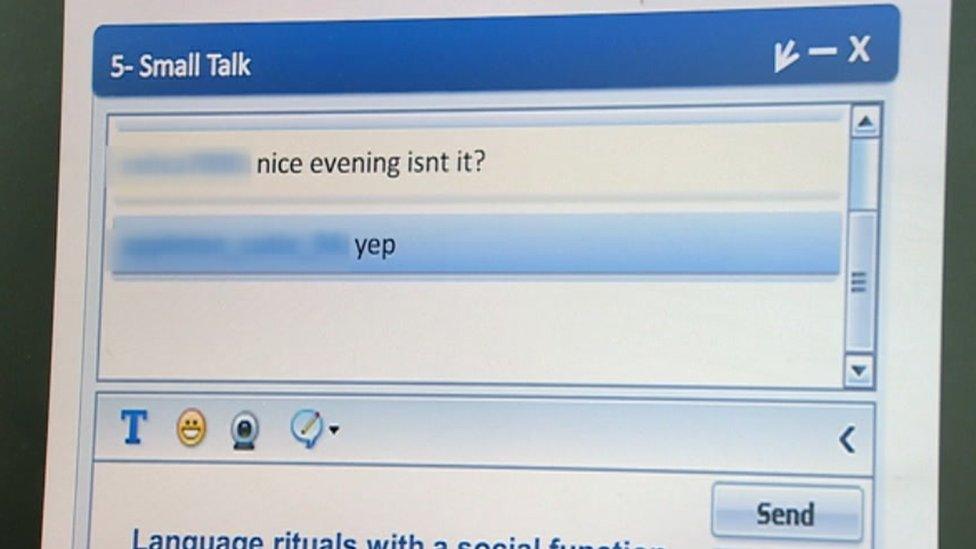Online groomers more honest to victims, study finds
- Published

Paedophiles are being more honest when grooming their victims online, researchers have found.
Swansea University psychologists have analysed hundreds of conversations in a bid to learn how they behave.
And their research found deception around age, location and appearance was fairly low.
But the worry is honesty can be more damaging to the victim because they are more likely to feel as if they are in a real relationship.
"The consequences are huge for the victim," said researcher Laura Broome.
"They may enjoy the outcome of the relationship until they realise it isn't right and, by that time, they are emotionally involved.
"They've been exploited and trapped. It may be sexual or they may have sent pictures but they are engaging in a relationship with an adult who has a sexual interest in children.
"Then they feel guilty about disclosing it."

Dr Cristina Izura, associate professor of psychology at the university and director of the Online Grooming Communication project, said the findings were "eye opening".
"It doesn't really fit into the stereotype of the paedophile," she said.
"It's really worrying because it is often under-reported."
Of the hundreds of conversations studied, the victims were predominantly girls aged between 13 and 15 and the approach taken was more about building the "relationship" and isolating victims from family and friends.
About 25% of cases were against boys and researchers found the paedophile would operate more quickly, be more open, aggressive and sexually explicit.
The project, which has been running for five years, found gaining victims' trust was a key part of engaging them in sexually explicit behaviour.

Groomers employ a "scattergun" approach to find victims, contacting dozens if not hundreds online to increase their chance of success.
This also limits their ability to lie, as maintaining this level of deception would be an impossible task, the research found.
"The next step is to raise awareness among children," Dr Izura added. "Currently, it's the only way to keep them safe.
'Manipulation techniques'
"The manipulation techniques can be so effective and so fast that the victims can easily be out of reach for parents, carers, friends or technology.
"We need to empower them with the knowledge of who is out there and what to do when they feel that something is wrong."
NSPCC Wales has worked with the university to create anti-grooming Stop Time Online materials to help warn young people to think before they talk to people online.
Des Mannion, head of NSPCC Wales, added: "It is important that research is carried out into the methods used by paedophiles and how they build up trust with their victims so we can educate the next generation about the risks they face."
- Published15 December 2016

- Published28 September 2017

- Published20 January 2017

- Published16 January 2017
